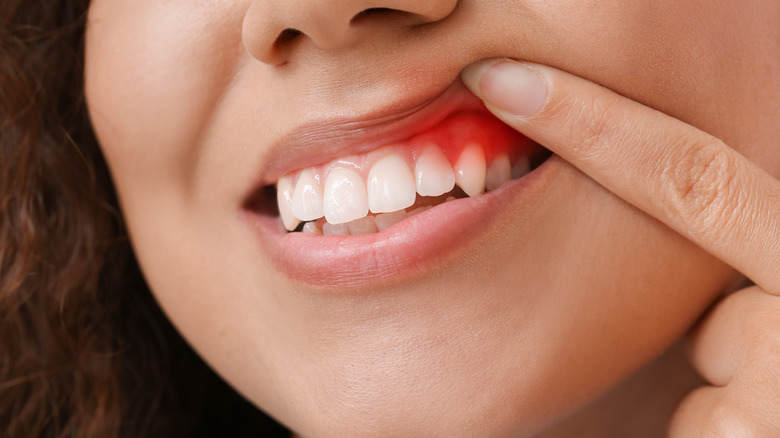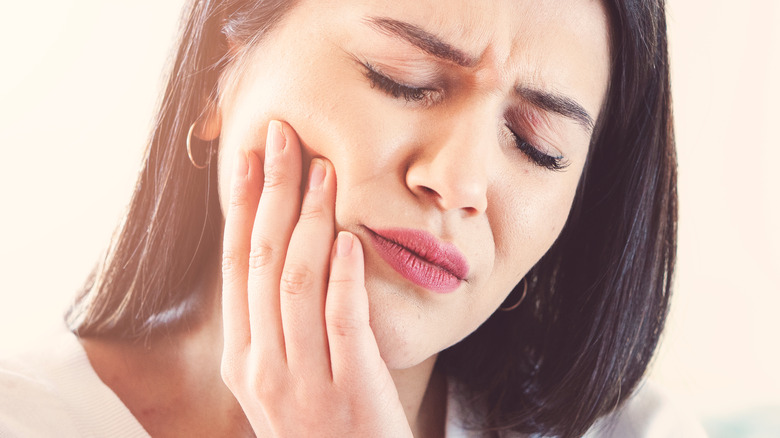Potential Ways COVID-19 Could Affect Your Teeth
Even among different variants, symptoms of COVID-19 seem to be pretty consistent. According to the Centers for Disease Control and Prevention (CDC), signs of the virus can appear anywhere between 2 to 14 days post-exposure and can range from mild to severe. Indications of infection include fever, chills, cough, shortness of breath, fatigue, body aches, headaches, and losing the ability to taste or smell. There are some cases in which emergency medical attention should be sought out. These warning signs include trouble breathing, persistent pain or pressure in the chest, confusion, inability to wake up or stay awake, and paleness or a blue color in the skin, lips, or nails.
According to Healthline, new data is emerging which suggests that there is a correlation between COVID-19 and dental health. A 2021 study in Oral Radiology found that nearly 75% of participants with severe dental disease were also hospitalized for COVID-19. According to the researchers, this likely stems back to SARS-CoV-2, which is the virus that results in COVID-19. There are receptors in the body called ACE2 that let SARS-CoV-2 into the body's cells. Many of these receptors are in the mouth, tongue, and gums. People who haven't done the best job taking care of their oral health may have more ACE2 receptors and, consequently, may be more susceptible to experiencing complications from COVID-19. However, more research is needed.
How to treat toothaches caused by COVID-19
Though research is always evolving, these oral symptoms have yet to be associated with COVID-19: bleeding gums, rash in the mouth, white coating on the tongue, yellow or discolored teeth, and losing teeth. But that doesn't mean that you can't experience dental problems when you have COVID-19.
Healthline says that dental pain during or after COVID-19 can be treated with 400 mg of ibuprofen. They added that ibuprofen is more effective than acetaminophen, and applying a soft washcloth soaked in cool water to the outside of the cheeks can also help. Call a dentist if pain relievers don't alleviate the problem. If you believe an infection or thrush is developing, a doctor can prescribe antifungal medications.
A 2020 study in Biomedical Journal reveals that people who make good oral hygiene a priority can lower the severity of COVID-19 symptoms if they contract the virus. According to MedlinePlus, taking care of your teeth includes flossing at least once a day, brushing twice a day with fluoride toothpaste, replacing your toothbrush every 3 to 4 months, eating healthy, avoiding added sugar, not smoking, keeping all oral appliances clean, and visiting a dentist at least every 6 months.


